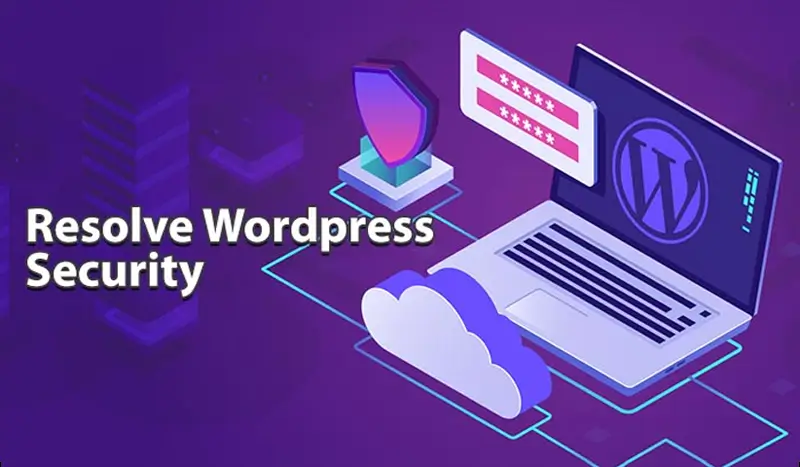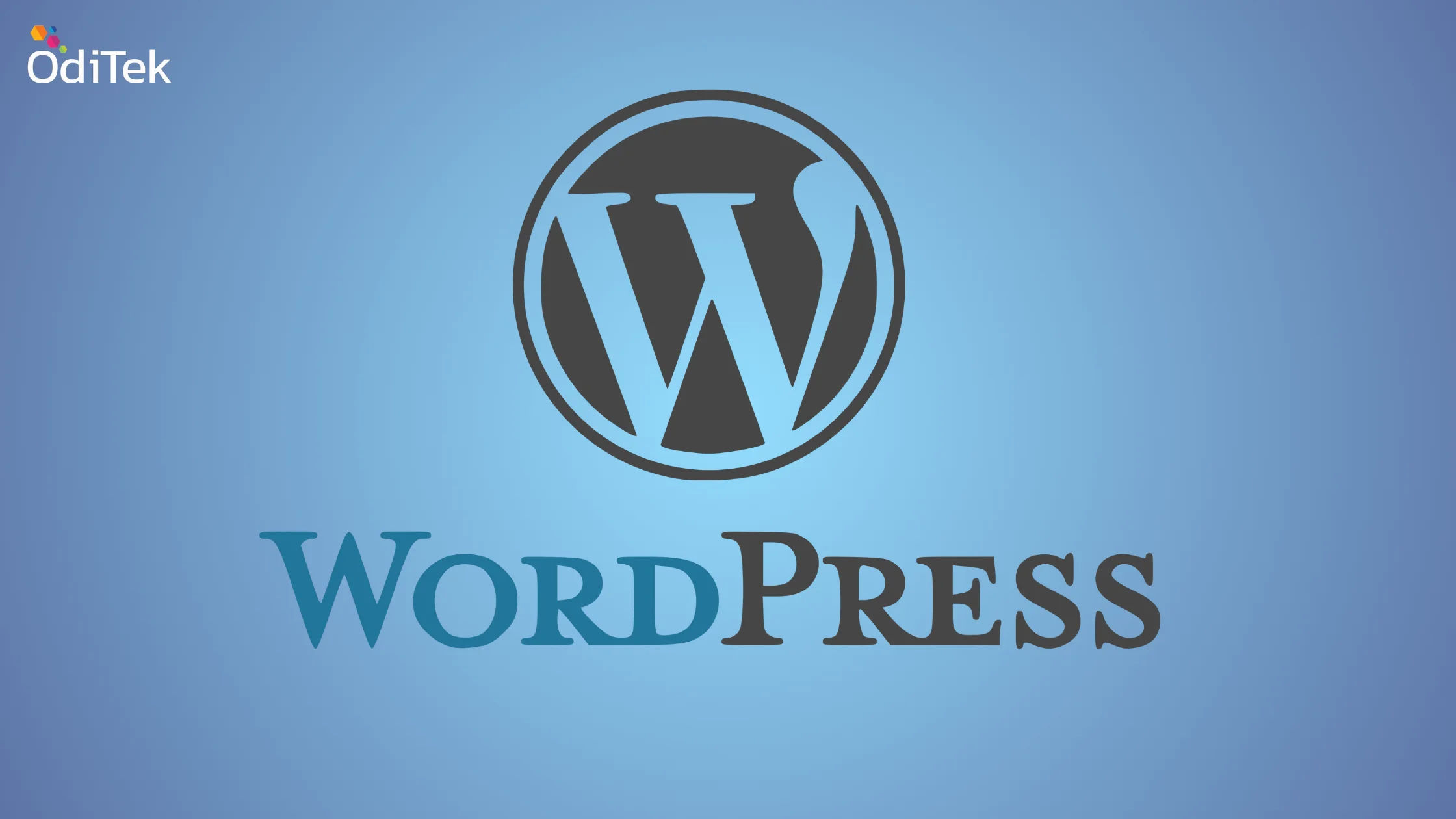WordPress is by far one of the most widely used open-source CMS in the world. It powers millions of websites and holds a 33% market share. This makes WordPress the alpha CMS among bloggers, designers, and business owners.
Despite being the most popular CMS on the Internet, and, perhaps unsurprisingly, the most hacked. In 2018, 90% of all CMS-powered websites successfully hacked were WordPress sites, amounting to around 90,000 attacks against WordPress websites per minute. Worse yet, many users believe in the misconception that installing an SSL certificate is enough to secure their site. Therefore, it is important to discuss the various effective methods of securing the WordPress site.
Half of the WordPress security vulnerabilities occur because of negligence. This is an important reason why WordPress websites are an easy target for cybercriminals. Many first-timer users simply install WordPress and then trust the default security of the WordPress website.
In this post, we will discuss several basic and some not-so-common tips about dealing with WordPress security issues.
WordPress Website Security
The Basics
WordPress security is mainly all about simple fixes and common sense. The idea is to apply fixes that minimize the commonly known WordPress security issues and harden the website security.
1: Invest in The Right Web Hosting
Website security begins with a securely managed WordPress hosting provider. This has become an essential aspect of building your online presence. A secure web host will not only have industry-proven security processes in place but also have your back in case something goes wrong with your website. Almost every such provider has an effective disaster recovery strategy that kicks in case your website suffers an incident.
There are five types of web hosting solutions where you can host your WordPress websites:
- Shared Hosting
- Dedicated Hosting
- VPS Hosting
- Cloud Hosting
- Managed Cloud Hosting
2: Leverage Scheduled Backups
Scheduled backups might not look like a WordPress security measure but this crucial step can prove to be a lifesaver when disaster strikes. In such cases, website backups are a great way of taking the site back online within hours of a disaster.
WordPress backups can be done on two levels: offsite backups and/or backup via hosting provider.
- Offsite WordPress Backup: Backing up a WordPress site is pretty easy, thanks to the UpdraftPlus plugin that back up a WordPress site to off-site storage solutions such as Dropbox, Google Drive, and Amazon S3.
- Local WordPress Backup: Backing up a WordPress site on the hosting provider’s server creates a Local Backup. Many WordPress cloud hosting providers provide a local backup process in which the entire server can be backed up automatically or manually on the same server.
If you are a Cloudways customer, you are in good hands. You can have a local backup in the same server and the entire server can also be backed up on Amazon S3.
3: Have a Strong Password
A strong password is a very basic but oft-overlooked WordPress security must-do that protects against many WordPress vulnerabilities. Ideally, passwords should be hard-to-guess for people and must contain case-sensitive alphabets, punctuation, and numbers. To enforce the habit of strong passwords on your site, you should use a plugin to enforce strong WordPress password policies. This ensures all your users use strong passwords.
A strong password is your first defence against brute force attacks that tries various combinations of usernames and passwords until your site gets compromised. A weak password never fares well against a brute force attack. And also CAPTCHA is considered one of the best protection against brute force attacks.
4: Limit Login Attempts
WordPress doesn’t place any restrictions on how many times a visitor can try out usernames and passwords multiple times at the login. This is the reason behind the many unintentional user-caused WordPress security issues. To prevent this and add an extra layer of security to the WordPress websites. Site admins should install a limit login attempts plugin that prevents hackers from exploiting this issue and mount a brute force login attack on your site. Use Two-Factor Authentication (2FA) is an industry-standard security practice that uses two-layer credentials to minimize the chances of unauthorized site login.
5: Change the WordPress Login URL and Default Username
- Change the WordPress Login URL
- Change WordPress Default Username
- Different WordPress User Roles
Changing the default WP-admin login URL makes it hard for hackers to launch a brute force attack at your website. This simple step greatly strengthens the security of your WordPress site. (Recommend WPS Hide Login plugin to change the default WordPress admin URL.)
The most basic security loophole that you can have on your website is the admin username “admin”. That is just too easy to guess. Go to the dashboard, make a new user and assign it the role of “Administrator”.
WordPress allows multiple users to contribute to a WordPress site using predefined roles. As a website administrator, you can modify or even create a separate user role by following the guide on custom WordPress user roles.
6: Keep WordPress Updated
Team WordPress regularly releases updates to the core files. These patches are available as self-contained installation files that fix known issues and generally strengthen the security of WordPress websites. Maintaining the website’s CMS is an essential aspect of running the website.
This also applies to the installed plugins and themes. Plugin developers follow the release cycle of the WordPress core files to make sure that the plugin keeps pace with the newer WordPress versions.
7: Delete Unused Plugins or Themes
Testing new themes and plugins is a good way to get the first-hand experience of the latest releases. However, once the testing is over, WordPress users usually deactivate the plugins instead of a proper uninstall.
The unused or inactive themes and plugins pose a serious threat to the WordPress website. It is very important that all plugins and themes that are not in use should be deleted immediately to make sure that no data remains in the WordPress database.
The Not-So-Basics
Now that you have an understanding of the basics of WordPress security, it is time to check out the following advanced tips for the security of your websites.
8: Prevent SQL Injections and URL Hacking
SQL injections are attacks in which attackers embed SQL commands in various areas of the websites. These commands can compromise the SQL database and might reveal sensitive information stored in the database. Modifying the URL by adding PHP statements is another potential threat to WordPress security in which the attackers can trigger attacks on the database and other website components.
Most WordPress websites are hosted on an Apache server that has a clever trick to counter these attacks. All Apache servers have a file .htaccess that define access rules for the website.
9: Deny Access to Sensitive Files in WordPress
A WordPress installation contains several sensitive files, such as the wp-config.php, install.php, and
readme.html files. These files must be kept hidden from all outside access. Again, .htaccess is your best friend.
10: Change Default Prefix for Database
- Hide WordPress Version: By default, WordPress automatically adds the current version number to the head section of themes. A great security tip is to never display the WordPress version publicly, simply because of the fact that attackers can launch attacks against all known vulnerabilities of the version mentioned in the header.
The following simple line of code should be included in functions.php file of your theme to hide the WordPress versions.
• remove_action( ‘wp_head’, ‘wp_generator’ );
- Change Default WordPress Prefix for Database: All tables in a WordPress database have names that start with the prefix “wp_”. While this appears to be a great feature, for WordPress hackers, this greatly simplifies things by removing some of the guesswork. A user can limit this predictability by changing the default WordPress prefix of user database tables while installing WordPress.
Cloudways Helps in Securing WordPress Sites
WordPress users should also opt for a secure hosting environment that offers a secure environment for the website. Here are some ways how Cloudways provides a secure WordPress hosting environment.
- First-Class Cloud Infrastructure
- Firewalls
- Server Monitoring
- SSH & SFTP Access
- Updated OS and Applications
- Randomly Generated Credentials.
- Backup
- Free SSL Certificate
- 24/7 Live Chat Support
The Deduction
WordPress security tips ensure an effective and secure website. However, many people forget that defending a WordPress website is an ongoing process which needs continuous attention in the face of new tools and tricks emerging in cyberspace. It is strongly suggested for WordPress Website Development Company India’s users keep a log of what happened on WordPress by using a security audit plugin and use the preferred WordPress security plugin which strengthens the WordPress environment against security threats. Oditek being a leading WordPress website development company in India, deploying more focus on security while putting up the site on production.







